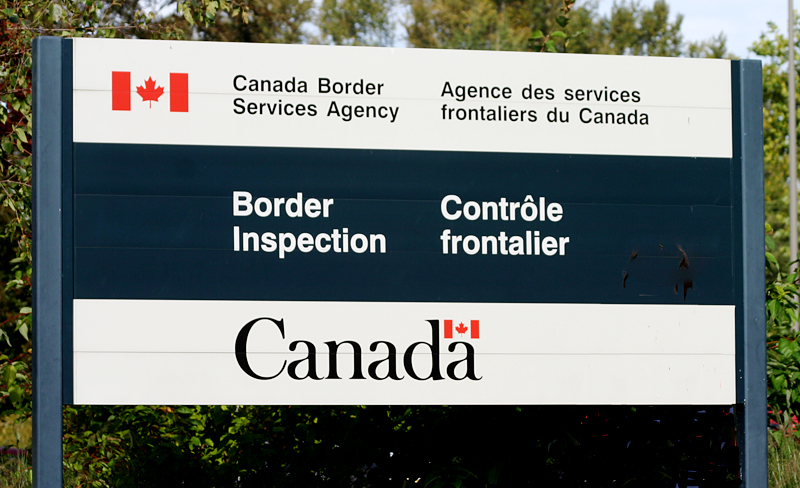In an attempt to include passengers and customers who do not identify themselves as either male or female and as part of its commitment to respect gender identity, diversity and inclusion, Air Canada reportedly will eventually replace the expression ladies and gentlemen with a neutral term — such as the word everyone, for example — in manuals for flight attendants and during announcements aboard airplanes.
Sex and the Airline: Gender Neutrality
“We want to ensure an inclusive space for everyone, including those who identify with gender X” is an excerpt from an e-mail message which was sent on Thursday, September 19, 2019 to all employees who are concerned or affected by this measure, according to this article written in French by Mayssa Ferah for La Presse. New regulations by the government of Canada state that anyone who does not consider themselves exclusively as a woman or a man benefits from a new option through which gender “X” may now be chosen in documents of official government identification — such as on a passport or citizenship certificate.
“Gender neutrality is important when writing about people because it is more accurate — not to mention respectful — and is consistent with the values of equality recognized, for example, in the Canadian Charter of Rights and Freedoms”, according to this article pertaining to guidelines to gender-neutral language at the official Internet web site of the Department of Justice of the Government of Canada. “It is also professionally responsible and is mandated by the Federal Plan for Gender Equality, which was approved by the Cabinet and presented to the Fourth United Nations World Conference on Women in 1995.”
One of the guidelines recommends using the word they when referring to a singular person who does not identify as either male or female:
Instead of:
A person elected under subsection (1) holds office until another is elected to replace him, at the first quarterly meeting of the next year or until he is removed from office or vacates it under the by-laws of the corporation.
Consider this:
The persons elected under subsection (1) hold office until others are elected to replace them, at the first quarterly meeting of the next year or until they are removed from office or vacate it under the by-laws of the corporation.
While the use of the singular is usually preferred, the plural may be used to avoid a gender-specific pronoun if its use does not create ambiguity.
Indeed, this definition of the word they found in the Merriam-Webster dictionary — which was apparently added on Tuesday, September 17, 2019 — supports this particular use: the word they is “used to refer to a single person whose gender identity is nonbinary”.
The nonbinary pronoun 'they' has been added to the dictionary. https://t.co/tadl1VdfB0
— Merriam-Webster (@MerriamWebster) September 17, 2019
“No doubt, some of you would still prefer to hear this from an English teacher” is what
He is — and he would never say this, but I will — not only an English teacher, but a highly esteemed one. He directs a university writing program. He is a former president of the National Council of Teachers of English, a 25,000-member organization comprised of instructors from elementary school through college.
And he writes grammar textbooks: The Simon and Schuster Handbook for Writers by Lynn Troyka and Douglas Hesse is used in classrooms all over the country.
My dad emailed me with a long, thoughtful commentary. He outlined the historical debate on whether dictionaries should be “prescriptive,” i.e. dictating the way things ought to be, or “descriptive,” i.e. merely documenting the way things are. He cited Samuel Johnson’s 1755 dictionary, and a great Webster’s dictionary battle from 1961.
He wrote about how language changes. How it’s always changed. How we’ve always changed. How we always will.
He also wrote, “I think the official recognition of singular they is a terrific thing. It’s great news for non-binary folks and, actually, everyone.”
Summary
Whenever I write an article here at The Gate and I do not definitively know the gender of the person about whom I am writing or to whom I am referring, I keep the article as gender-neutral as possible to respect the identity of the person.
I also believe in respecting the identity of any person — even to the point of ensuring that I spell or pronounce the name of the person properly — and not wanting to personally alienate anyone.
Despite the Merriam-Webster dictionary also defining the word they to be “used with an indefinite third person singular antecedent”, I have never used it to define a singular person and do not believe that it should do so in the future. I would rather support a different word to describe a singular person who identifies as neither male nor female.
Ironically, the aforementioned article which appeared in La Presse was written in French — which is one of the Romance languages — most of whose nouns are identified as either masculine or feminine…
…and the word themself does exist, with the definition of “now used chiefly in place of ‘himself or herself’ as a gender-neutral reflexive form of they when the reference is to a single person.”
Should additional airlines adopt a similar gender neutral policy to the one reportedly to be used by Air Canada? I would like to know of your opinion pertaining to this issue.
Photograph ©2013 by Brian Cohen.

